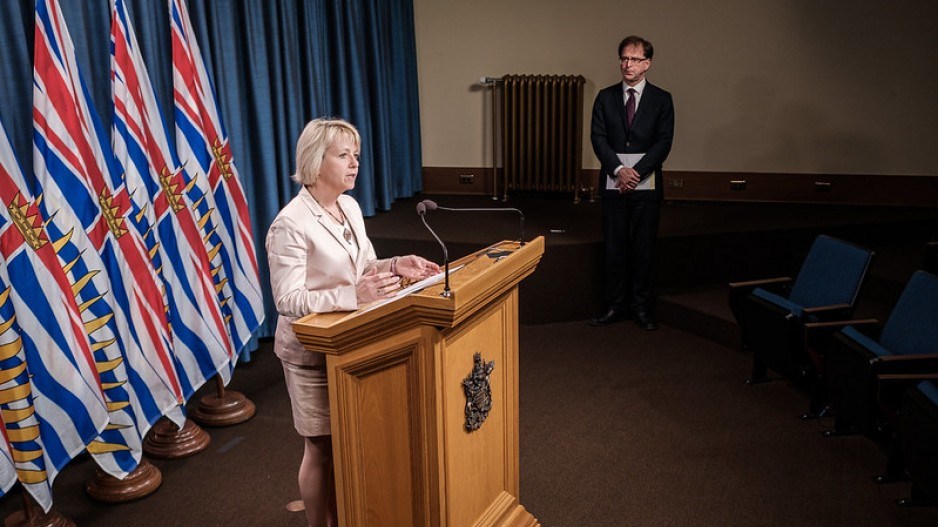New COVID-19 outbreaks have been discovered in the past 24 hours at Abbotsford's New World Technologies and Delta's Maersk Distribution Canada, B.C.'s provincial health officer Bonnie Henry said June 2.
She described both of these outbreaks as being in offices. Both workplaces have two cases and public health teams are at both sites to investigate and determine which people may have had contact with the infected individuals.
The new outbreaks come on what was otherwise a relatively good day, given that there were no new deaths in the last 24 hours, and a spate of outbreaks at seniors' homes and at an acute-care ward at Abbotsford Regional Hospital are newly declared over.
Henry said that outbreaks are declared over at North Vancouver's Amica Edgemont Village, Vancouver's Royal Arch Masonic Home, Maple Ridge's Chartwell Willow Retirement Community, and Chilliwack's Eden Care Centre. That means that no new cases have been discovered at those facilities in the past 28 days, or two incubation periods.
This leaves eight active outbreaks at seniors' care facilities, all of which are long-term care residences. Two of those homes are in Vancouver Coastal Health, while six are in the Fraser Health reigon. No new cases of COVID-19 have been discovered at any of those homes in the past 24 hours.
Health Minister Adrian Dix said that while the good news on fewer seniors'-home outbreaks and no new deaths is promising, the new outbreaks at businesses show that COVID-19 is alive and well in B.C. and "requires vigilance."
The four cases in the offices were the only new COVID-19 cases that B.C. recorded in the past 24 hours. The province has had a total of 2,601 cases of the virus that has caused a global pandemic since it first appeared in B.C. in January.
The breakdown of all COVID-19 infections by health region is:
• 904 in Vancouver Coastal Health;
• 1,311 in Fraser Health;
• 127 in Island Health;
• 195 in Interior Health; and
• 64 in Northern Health.
Of all of those who have been infected, 165 have died, 207 are battling illness and 2,229 have recovered.
Most of the 207 people with active illnesses are self-isolating at home, although 31 of them are in hospital, with eight of those in intensive care units.
Dix shared other good news that was part of his weekly update on personal protective equipment. Two separate independent labs in the past week have confirmed lab test results done at the University of British Columbia that showed that respirators that B.C. has bought from a new manufacturer in China has exceeded necessary standards.
"This is excellent news for two reasons," Dix said. "We have a significant inventory of this product – three million respirators in B.C. and now [we] are assured that the product is safe and effective for our healthcare workers. And, the availability of this equivalent product will reduce our reliance on the traditional 3M respirators that have been extremely difficult to procure due to global demand and supply-chain issues."
The government has not yet introduced the equivalent respirators for use in the healthcare system because officials have wanted to take time first to communicate with workers about the new product, and to ensure that the respirators are tested to ensure that they fit all employees who may need to wear them, Dix said.
"The significant boost of three million N95-equivalent respirators puts us in good stead as we ramp up our health system, catch up on scheduled surgery volumes and prepare our province for a potential second wave of COVID-19," he said.
Overall, B.C. has acquired more than four million N-95 or equivalent respirators, about 4.5 million surgical masks, 27 million pairs of gloves, 1.3 million gowns and 1.25 million pieces of eye protection, including goggles and face shields.




